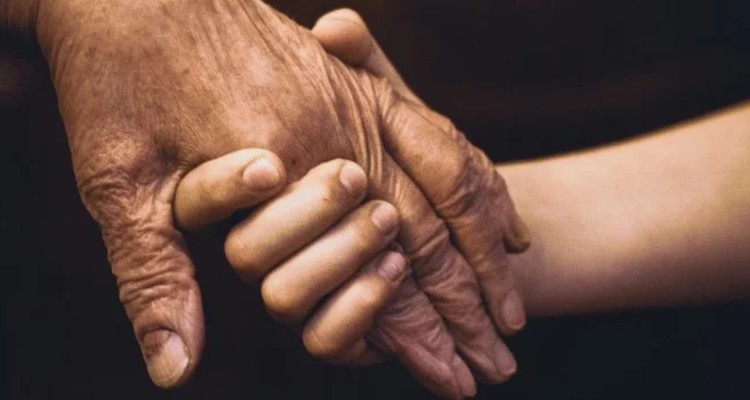By now, it’s a well-accepted fact that a sedentary lifestyle can contribute to a myriad of serious health challenges related to weight, insulin response, and cardiovascular health.
If you work from home or are adapting to new routines and stressors that make physical activity more challenging, finding ways to support physical, mental, and emotional health is more important than ever.
Have you thought to yourself, “I need to lose weight”? Perhaps you’ve heard that advice from your doctor. If this sounds familiar, take a moment to consider what this means and what cascade effect it’s having on your overall sense of well-being. Does this feeling of a need to lose weight bring on shame, feelings of being unworthy, or other destructive thought patterns? Or do you just want to lead a healthier, more active life?
These questions are foundational for weight loss and your overall well-being in a holistic sense. They’re fundamental for successfully implementing holistic weight loss tips.
What is Holistic Weight Loss?
Holistic weight loss is an approach that considers the many factors that can contribute to a person carrying around extra weight. It includes not only diet and exercise, but also the spiritual, emotional, and mental components that play a huge role in the body’s ability to reach and maintain a healthy weight.
Begin by asking yourself why you want to lose weight, eat healthier, and exercise? Find your personal “why,” as this will keep you motivated to make long-term lifestyle changes. Perhaps this is aging gracefully and being able to play with your grandchildren, staying energized and performing well at work, improving your mood, being a better parent or partner, feeling confident and sexy in your skin, or something entirely unique to you.
Everyone has their reasons for wanting to be healthy, so find yours and write it down in a place you’ll see often. At the end of the day, it’s not comparing your body to others or feeling guilty that will keep you truly invested in your health.

1. Stay Hydrated
Staying well-hydrated serves multiple purposes when trying to lose weight. First and foremost, it’s common to mistake thirst for hunger. If you feel the urge to reach for seconds or snacks, try drinking a glass of water. The signal for thirst and hunger reaches the same place in the brain, so dehydration can easily lead to overeating
Shoot for a minimum of half of your body weight (in pounds) in ounces of water, and drink 1/4 of that amount upon waking. Lukewarm water is easier on the digestive system and always opt for pure, clean water whenever possible.
2. Get into the Zone
Stress has a significant impact on the body’s ability to lose weight. So, find ways to get into your zone of peace, calm, and presence. This might mean connecting with nature, interacting with friends, journaling, going for a walk, meditating, creating art, etc. These activities put your body into the parasympathetic nervous state (rest and digest) your body should be in while cooking and eating meals.
3. Eat Your Veggies
Studies show that eating more vegetables has a positive effect on weight loss, and most people don’t get nearly enough.[1] Along with fiber that keeps you satiated and less likely to overeat, dark leafy greens and cruciferous vegetables also provide vitamins and minerals needed for a healthy hormonal balance that’s essential for weight loss.
Get in at least 1-2 cups of dark leafy greens and cruciferous vegetables each day. Dark leafy greens include lettuce, Swiss chard, bok choy, spinach, arugula, and more. Common cruciferous vegetables include broccoli, cauliflower, Brussels sprouts, kale, and cabbage.
4. Go to Bed Before 11 pm
Honoring that you are from nature and have a circadian rhythm that syncs with the rising and setting sun plays a more significant role in weight loss than you might know. Thyroid, estrogen, progesterone, testosterone, and insulin are all hormones that profoundly impact metabolism and other processes related to weight management, and they are produced at night. When you sleep before 11 pm, you benefit from the body’s sleep hormone, melatonin, which is the body’s most potent self-made antioxidant.
Especially if you work from home, separating work and relaxation can be challenging, and sleep hygiene becomes even more critical. For a good night’s rest, be sure to turn off electronics at least an hour before bed, avoid working from your bedroom, find activities to help you wind down. You can read DaVinci’s Sleep Benefits White Paper for more detailed information on sleep hygiene and supplementation.
5. What Are the Best Nutritional Supplements for Weight Management?
Foods, exercise, and lifestyle should be the basis for holistic weight loss, but speaking with your integrative doctor about certain nutritional supplements can also help as well.*
CLA (Conjugated Linoleic Acid) is a natural fatty acid found in meat and animal products, and some research shows promising effects on its ability to increase calories burned at rest, stimulate fat loss, and decrease sugar cravings.[2]*
A lesser-known polyphenol bioactive, Dichrostachys glomerata fruit extract, has been shown to enhance insulin sensitivity, which ultimately promotes balanced blood sugar and weight management.* This polyphenol has also been found to minimize damage from excessive free radicals in the body, which can support heart health and a healthy response to occasional inflammation.*[3]
Caffeine from coffee and green tea can increase metabolism. So, enjoying a cup of these beverages can be an excellent way to support other weight loss efforts. Just remember, moderation is key.
Weight loss is much more than just diet and exercise, and you owe it to yourself to explore options to keep yourself healthy.
Holistic weight loss means escaping the “diet” mentality and freeing yourself from an obligation to eat foods and do things you don’t enjoy. The process of losing weight and being healthy should not be painful, but instead should be a journey of finding ways to move your body, prepare foods, and support your emotional and mental health that are fun. Try new things, ask for help, and accept that life (and weight loss) are full of many twists and turns along the way.
By Dr. Serena Goldstein, ND

[1] Nour, M., Lutze, S. A., Grech, A., & Allman-Farinelli, M. (2018). The Relationship between Vegetable Intake and Weight Outcomes: A Systematic Review of Cohort Studies. Nutrients, 10(11), 1626. https://doi.org/10.3390/nu10111626
[2] Kennedy, A., Martinez, K., Schmidt, S., Mandrup, S., LaPoint, K., & McIntosh, M. (2010). Antiobesity mechanisms of action of conjugated linoleic acid. The Journal of nutritional biochemistry, 21(3), 171–179. https://doi.org/10.1016/j.jnutbio.2009.08.003
[3] https://cdn.shopify.com/s/files/1/1935/1951/files/DygloFit_human_clinical_trial.pdf?9037153802353775334










.jpg)






